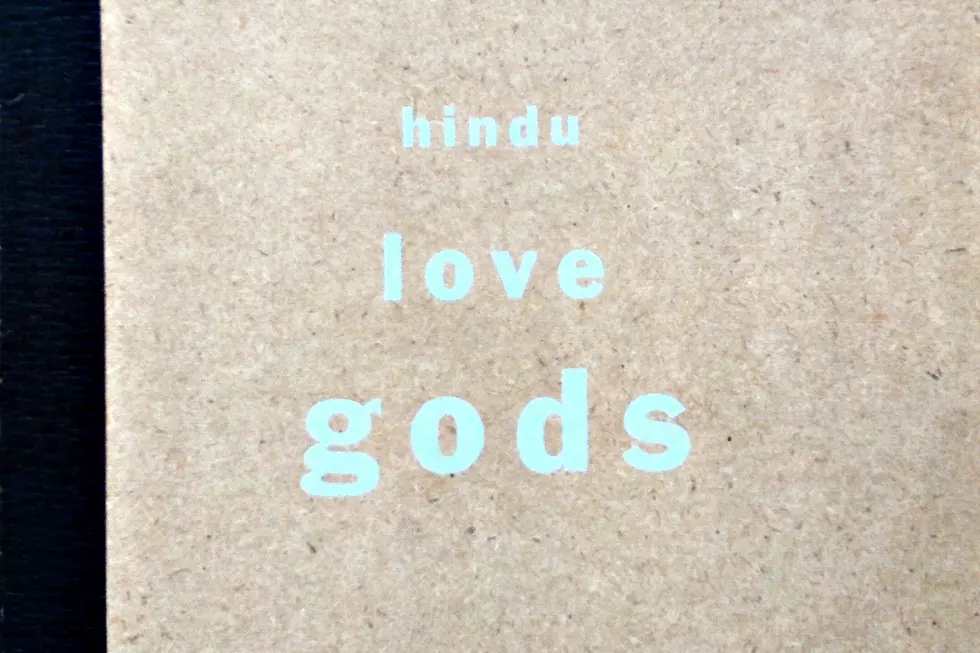
How Warren Zevon’s R.E.M. Jam Session Became ‘Hindu Love Gods’
Warren Zevon was a grizzled veteran of the L.A. singer-songwriter scene in 1990, with a career rap sheet long enough to fit a couple of comebacks and a stint in rehab. Meanwhile, the guys in R.E.M. were comparative upstarts, still breaking out of college radio and into the mainstream.
Despite the gulf of experience between them — and their very different styles of music — they'd developed an on-again, off-again working relationship that lasted for much of the '80s.
Although most Zevon fans would be unaware of his R.E.M. association until the band members appeared on his 1987 album Sentimental Hygiene, their relationships dated back to the early '80s, when Zevon went through a period of personal and professional turmoil after the disappointing commercial showing of his 1982 LP The Envoy. Without a record deal and battling addiction, Zevon fell out of the limelight for several years, during which the bulk of his musical activity came on the concert stage — including some shows as part of a loosely organized R.E.M. side project dubbed the Hindu Love Gods.
A low-profile collective based around R.E.M. drummer Bill Berry, guitarist Peter Buck and bassist Mike Mills, the band's early lineup also featured Bryan Cook, a fellow native of Athens, Ga., on keyboards and vocals. Zevon's first show with the Gods took place in early 1984. Later that year, he joined the band in the studio for what was supposed to be a one-off single, a cover of the Easybeats' "Gonna Have a Good Time Tonight."
Reflecting the project's fairly shambolic nature, the seven-inch — backed with a recording of the band running through Berry's "Narrator" — didn't even see release until 1986.
As Zevon later explained, although the band gave him some focus during a time when he probably needed as much of it as he could get, it was never really a priority. "I've known those guys for years," he told the Los Angeles Times. "My manager for eight years, Andrew Slater, met Peter Buck when they were both in school at Emory University in Georgia. Anyway, the Hindu Love Gods thing was just this spontaneous, unplanned thing."
Listen to the Hindu Love Gods Perform 'Battleship Chains'
Fittingly, when the band resurfaced years later, it was on the spur of the moment after Berry, Buck, and Mills finished tracking their parts for Sentimental Hygiene. With hours of studio time already booked, they did what musicians tend to do when left to their own devices.
"We had an extra day," Zevon told Goldmine. "We finished ahead of schedule. We had a month of studio time to do the album and we finished ahead of time, so we did the Hindu jam session deal. We did it in one day."
The "jam session deal," as Zevon described it, found Zevon leading the band through a series of covers — mostly blues standards like "Crosscut Saw" and "Junko Pardner" with a smattering of newer numbers sprinkled in, like the Georgia Satellites' "Battleship Chains" (written by Southern cult songwriting hero Terry Anderson) and Prince's "Raspberry Beret."
"It took about as long to do as it takes to listen to it," Berry told Q. "Warren would go, 'It's in E, here's the tempo, when I shake my head like this we'll stop.' It was all done first or second take, over in a couple of hours."
Although the results were preserved for posterity, none of the musicians involved gave a second thought to actually releasing the recordings as an album, and they stayed in the vaults for several years — until Slater, seeking a new deal for Zevon after his brief association with Virgin ended following 1989's Transverse City, decided to dangle the Hindu Love Gods as a carrot for a contract with Giant – a new label founded by Zevon's former manager, Irving Azoff.
The "band's" self-titled album, released Oct. 5, 1990, came as a surprise to Berry, Buck, and Mills — and not an entirely welcome one. "We never thought it would be a real record – we didn't think anyone would have the balls to put it out," insisted Mills. "We didn't think about it for another three years, then all of a sudden his manager decided he wanted to make a record out of it."
Listen to the Hindu Love Gods Perform 'Raspberry Beret'
At this point, R.E.M. had a far higher profile than Zevon, and his presence on a band-affiliated album was a solid career move that produced a minor Modern Rock hit with their version of "Raspberry Beret." He seemed painfully aware, however, of the tensions the Hindu Love Gods record placed on his relationship with Berry, Buck, and Mills.
"We ultimately would have preferred it not come out at all, I think. It sold for like a dollar," Zevon protested. "I didn't have anything to do with the packaging or anything. They [R.E.M] think I'm exploiting them, and I think they resented [that], but it has nothing to do with any of us. I told my manager, 'This is all yours. I don't want to see it; I don't want to argue about it; I don't want to hear about it. Whatever you want, whatever you're gonna do, it's up to you.'"
Berry admitted that Zevon "kind of borrowed the name Hindu Love Gods, took it for what he could – and I don't blame him. He's a great guy, good luck to him. I'm not as fond of his management, though. It got a bit ridiculous: They were making demands on us. They wanted us to do videos and stuff, and we we were saying, 'Come on, this was done as a drunken thing!' Sentimental Hygiene came out four years ago – now they're saying we're sabotaging his career by not cooperating at this point!"
In the end, the Hindu Love Gods album proved a likable oddball stiff — the kind of record hardcore fans might seek out and a few stray listeners might take a flyer on, but one that never generated any real sales traction, topping out at No. 168 on the Billboard Top 200 Albums chart. And ultimately, it didn't offer much of a leg up for Zevon's next effort, Mr. Bad Example, which failed to chart when it arrived the following October.
As with many of the collaborative relationships Zevon drifted through during his often brilliant career, his time working with the members of R.E.M. wasn't destined to last. But while the Hindu Love Gods experience might have left a somewhat sour aftertaste, it didn't dim the respect Zevon's younger bandmates had for him as an artist — or put a pall on their memories of their time goofing around in the studio.
"Not only was he a tremendously gifted singer, songwriter, guitarist and pianist, but he was just a fun guy. He was really smart, and he really knew how to look at life with kind of a crooked view. I consider us very lucky for being able to have worked with him, but even luckier that we got to know him," Mills later told the Huffington Post. "You need somebody to say things in the way that Warren said them. There are enough sweet love songs. It's good to have a little cynicism too."
Rock's Most Overshadowed Debuts
More From Ultimate Classic Rock









